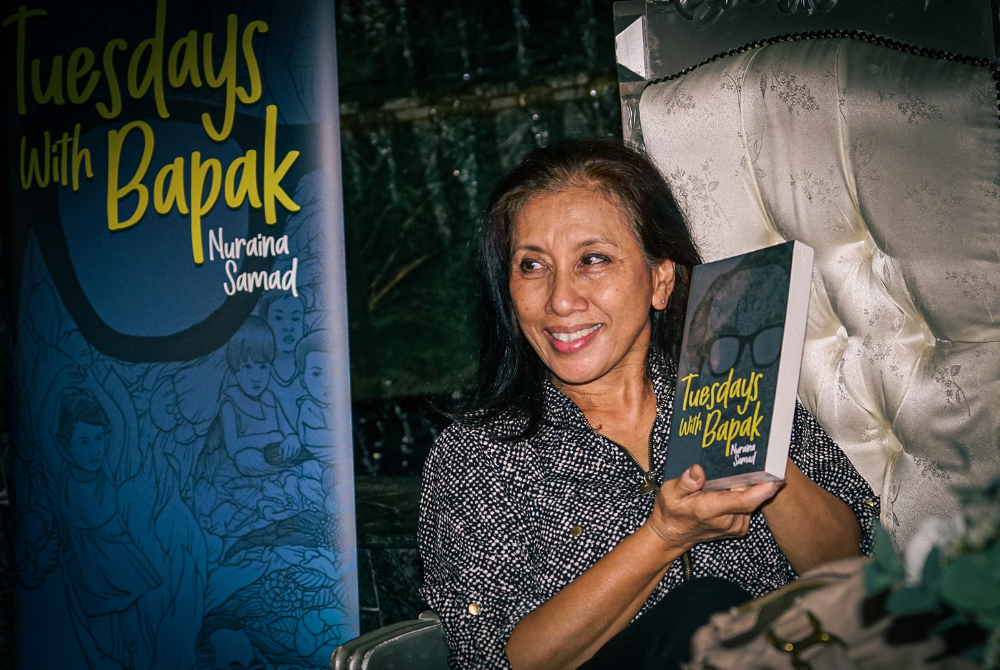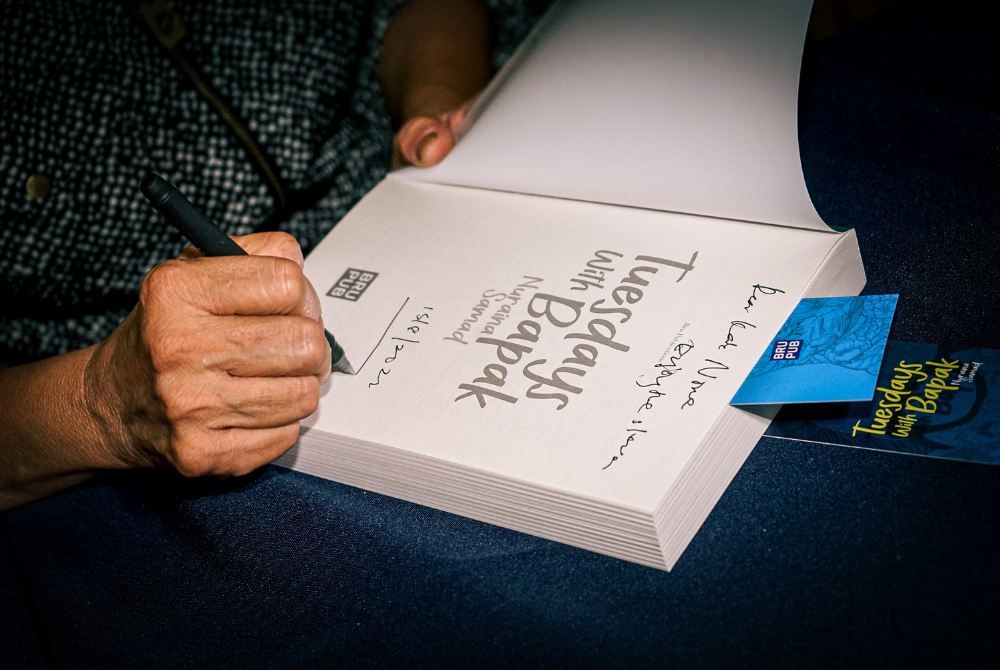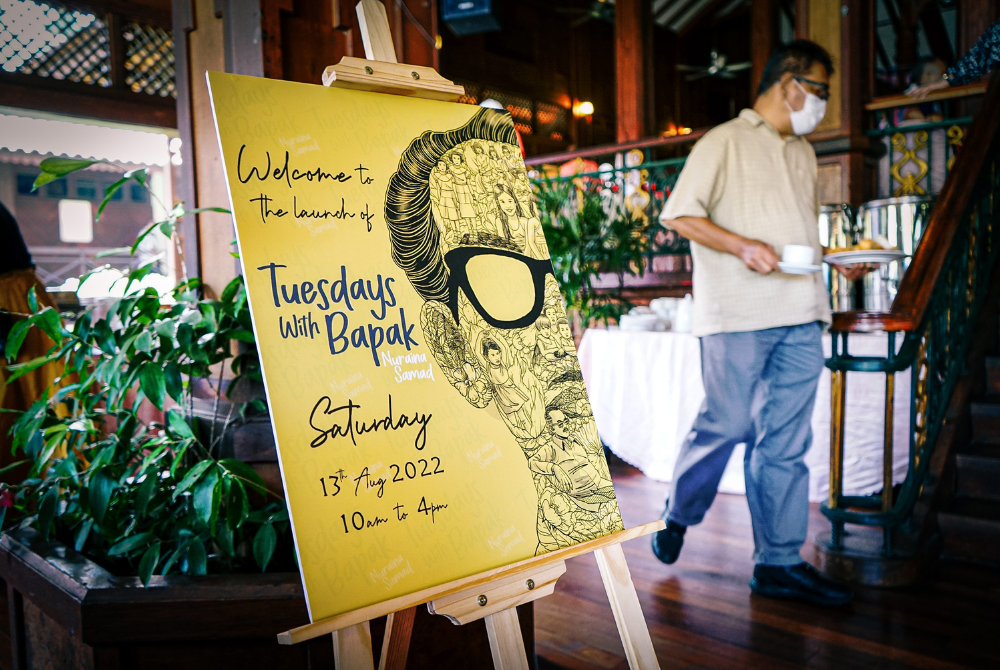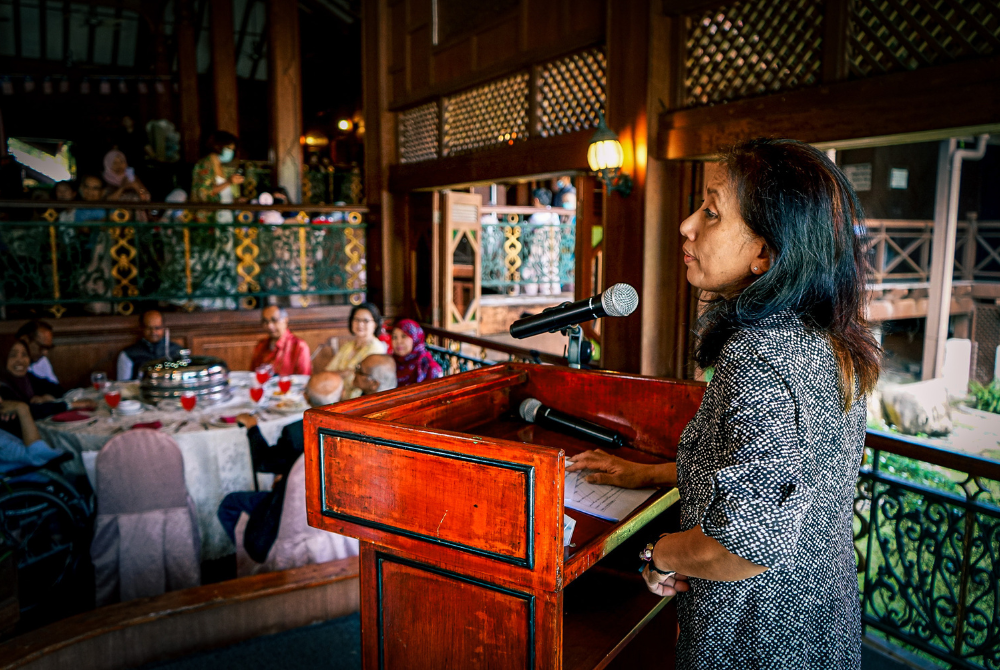A book on faith, family and politics; penned by an "anak komunis"


KUALA LUMPUR – The afternoon interview with Datuk Nuraina Abdul Samad at her book launching at a clubhouse here, began with the frankest question she was ever asked at the function.
“Do you still hate King Ghaz?”
She smiled. It was an honest one. Not a hint of vengeance, deceit or cynicism.
“No,” the celebrated journalist finally answered. “I don’t hold grudges against those who had already passed away.”
Even if she had any lingering aversion towards the former minister of Home Affairs, such feelings would have been understandable.
‘King Ghaz’ or Tun Muhammad Ghazali Shafie was the culprit behind her father’s – Tan Sri Abdul Samad Ismail – five-year detention under the Internal Security Act (ISA), in June 1976, for allegedly sympathising with the Communist.

To the unfamiliar, Abdul Samad was born in Geylang, Singapore, on April 18, 1924. He started his career in journalism with Utusan Melayu, at the tender age of 16, before becoming editor of Berita Malai in 1944, at the height of the Japanese occupation.
He was active in politics and co-founded Gerakan Angkatan Muda in 1947 and was also involved in the Anti-British League coalition and was arrested twice in (1946 and 1951), in Singapore, by the British.
Abdul Samad was also the founding member of Singapore’s People Action Party in 1954 and was, prior to his 1976 detention, jailed in Pulau Sekinchan for incitement following the Natrah Riots in 1951.
“When my father was released [from ISA, in 1981], I have left those feelings. Those are memories. I don’t dwell on it anymore.
“Was it painful? Of course it was, but a lot of painful things eventually come out as blessings. I am done taking things personally,” she swallowed.

Nuraina’s book, Tuesdays With Bapak (TWB) is, by her own admission, “not a literary masterpiece.”
“I’m so sorry, to have let the cat out of the bag,” she apologised, earnestly.
TWB is a compilation of stories about her beloved father, Abdul Samad – a paragon in Malaysian journalism who is affably known as ‘Pak Samad’ by veterans in the industry – and the series of family visits that he was permitted to have in a police station on Tuesdays.
TWB began like most good movies would – an opening scene that felt like the middle part of the story, peppered with just enough pockets of suspense, drama and information for readers to put two-and-two together.
Spoiler alert, here’s an excerpt from the first chapter:
“Mak sat motionless and silent for a long while after Bapak was taken away. She seemed so calm. No tears. Was she in shock? We couldn’t tell.
“Then she looked up. ‘Go back to sleep. Don’t worry, your father will be home tomorrow,’ she said reassuringly. It was already about 4AM. Wouldn’t that mean today?”

To the more erudite and politically savvy readers, TWB is more than just a compelling non-fiction anthology; it is a cautionary tale, a sobering reminder of the dangers and damages that politics can do down to the micro-level.
Was it truly a mere coincidence that Nuraina – who pioneered the New Straits Times’ (NST) political desk – decided to publish TWB at a time when the people’s political fatigue and distrust, sits at all-time high?
“There are political abusers then, there are political abusers now. There will always political abusers. The book had nothing to do with the current political scene,” Nuraina maintained.
“No comments on the present government though,” added Nuraina who ended her stint with NST as its Managing Editor.
At RM50 a copy, TWB is worth every ringgit spent.
It is a must-read for those who sought to get a glimpse of the country’s dark dan draconian tryst with the the-now repealed ISA from the perspective of those whom it had inadvertently hurt.
The book is sold at the following bookstores: Kinokuniya, Popular, MPH, MyBuku and GerakBudaya.











